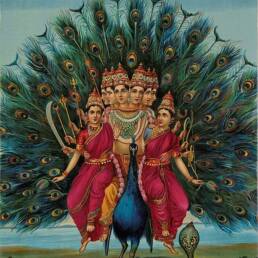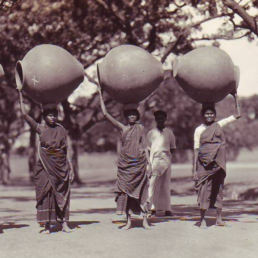We all loved Stranger Things to the moon and back. But only a few have noticed this ‘cameo’ of Gandhi in Season 4 of this celebrated Netflix Original drama. As the plot unfolds quietly, we unveil the strange story of Gandhi & a smuggler.
There may have been many people who missed the Duffer Brothers’ Stranger Things S4E3’s brief mention of Gandhi, which is a subtle testimony to Gandhi’s global appeal due to his commitment to non-violence. The premise was highly unusual.
When Hopper, our favourite chief of police, was taken prisoner by the Russians and detained in a godforsaken prison in Kamchatka, he bribes a guard, Dmitri Antonov, while being held captive. The plot thickens.
Antonov arranged a crooked smuggler Yuri Ismaylov in Alaska to make a passage for Hopper’s escape in exchange for $40K. But Hopper couldn’t trust Yuri, knowing he was a smuggler.
Despite that, the eccentric smuggler was Antonov’s only choice to get Hopper back home. So, when Hopper asked him whether an immoral smuggler is going to help him escape, Antonov replied with a smirk “Who else do you want to do this job? Gandhi?”
Gandhi has become a universal symbol of morality and dignity. Therefore, it is not strange that a Russian jail guard used his name in contrast to a dishonest smuggler. But in his real life did Gandhi ever face a smuggler? We go back to 1893 for the answer.
It was a turbulent time in South Africa when Gandhi first landed there. He developed a close bond with a certain Parsi Rustomjee, a wealthy Indian merchant.
Rustomjee, originally from a Parsi Zoroastrian family in Bombay, arrived in Durban at the age of 17 and worked for an aerated water company before going on to become a successful businessman. However, he kept a murky secret.
He was guilty of smuggling while importing products from Bombay and Calcutta to South Africa. No one was likely to suspect him though, as he was friendly with the customs officers who used to clear his bills when it came to charging duty.
On one occasion, Rustomjee was apprehended during smuggling and was in danger of going to jail. Without a second thought, he ran to Gandhi’s abode with tears rolling down his cheeks and begged for his forgiveness.
Gandhi remained calm. He advised him to come clean, confess his crime and offer to pay penalties the Customs Officer and Attorney General could impose. The court was moved by his honesty, and the dispute was resolved amicably.
Upon release, Rustomjee transcribed his confession in writing, had the paper framed, and put it in his office as a constant reminder to his heirs and fellow businessmen not to commit any sin as advised by Gandhi.
Gandhi’s practice of truth touched Rustomjee’s life like many others and inspired him to commit his life to love, forgiveness and resistance. Rustomjee became one of the most influential Satyagrahi in Natal and the founder of various hospitals and orphanages.
Rustomjee’s foundation for Muslim orphans drew harsh criticism from members of his community who wished to restrict his charitable efforts to the Parsee group alone. He was unwavering in his belief that every Indian should be treated equally as a child of Mother India.
When a European mob was preparing to lynch Gandhiji in Durban, Rustomjee offered him refuge in his own home. He never abandoned his friend even after the mob surrounded his home and threatened to set it on fire.
Parsi Rustomjee wasn’t your typical fictional smuggler, rather he was a part of our history. From an uneducated immigrant boy to a businessman involved in petty smuggling to a relentless Satyagrahi who sacrificed everything in defence of human rights – history is sometimes stranger than fiction.
Source: The Story of My Experiments with Truth/ MK Gandhi, Netflix, Wikimedia. texts Obituary of Parsee Rustomjee, Indian Opinion. Satyagraha: MK Gandhi in South Africa / Philip Glass, Constance DeJong




